The field of nutrition is full of controversy. I’m no stranger to it. It’s actually one of the reasons I love my profession so much. Nutrition is complex, science is ever-evolving, and there are so many dots to connect.
Compared to a lot of fields, nutrition is unique in that everybody has to eat, so everybody has a personal experience with it. (Not so much the case if you’re an electrician, a contract lawyer, a pilot, or a surgeon.) Also, since everybody has to eat, food and nutritional supplements are a massive, massive industry. Everything from food companies to higher education to Netflix documentaries have something to sell you (or an ideology to convince you to adopt).
The downside is that truly evidence-based information is hard to come by. Even as a free-thinking registered dietitian with a strong background in research, I have to work really really hard to find unbiased information.
My specialty—prenatal nutrition—is even more challenging because not many types of studies are considered ethical to perform on pregnant women in case it causes harm to the baby. That means many of our current prenatal nutrient recommendations are actually best guesses.
For example, it’s recently been found that the recommended intake for vitamin B12 during pregnancy was underestimated considerably (actual needs are 3x higher). (Journal of Nutrition, 2015) In addition, the optimal intake for choline is likely set far too low. Studies that have supplemented women with more than DOUBLE the current recommendation show significantly better brain development (as measured by reaction time) in infants. (FASEB, 2017)
Why are these two examples relevant to a discussion about a vegetarian diet in pregnancy? Because both vitamin B12 and choline are found primarily in animal foods. If our estimates of these nutrients are off, maybe the recommendation that a diet devoid of animal foods is nutritionally adequate for pregnancy needs to be re-examined.
If you are familiar with my work already, you know my recommendations on optimal nutrition for pregnancy are much, much different than conventional guidelines (which is one of many reasons that I cite and cite and cite my work with relevant research).
When you reverse engineer a nutrient-dense prenatal diet to cover all/most of your nutritional needs from food alone, it’s not a vegan (or even vegetarian) diet. This is surprising, outrageous, and in some cases, angering to many people.
Food choices are a loaded topic
As a former vegetarian myself and friend to many currently practicing vegetarians and vegans, I understand all arguments for and against the consumption of animals.
Let me be 100% clear: I respect your choice.
In the context of pregnancy, when your growing baby is reliant upon your nutrient intake and nutrient stores to grow, there are some important considerations relevant to this choice. This is why I included a very detailed, evidence-based discussion on the challenges of a vegetarian diet during pregnancy in Real Food for Pregnancy.
My job is to look at the data and show you which nutrients could be missing/lacking, how you can make up for them (with food or supplement choices), and some of the downstream consequences of whatever choice you make.
Vegetarian Diet in Pregnancy: Nutrients of Concern
The following nutrients are challenging to obtain from a vegetarian diet:
- Vitamin B12
- Choline
- Glycine
- Preformed vitamin A (retinol)
- Vitamin K2
- DHA
- Iron
- Zinc
If you follow a strictly vegan diet, meaning you consume absolutely no animal foods—no meat, poultry, fish, dairy, or eggs—some of these nutrients may be impossible to obtain from your diet.
What I find worrying about sources promoting a vegan diet as appropriate for pregnancy is that many of the above nutrients are not even taken into consideration.
We have several considerations for the above nutrients on a vegetarian diet:
- Certain nutrients may be missing entirely (such as vitamin B12)
- Certain nutrients may not be provided in sufficient concentrations in plant foods (such as choline, glycine, and vitamin K2)
- Certain nutrients may not be well-absorbed (such as iron and zinc)
- Certain nutrients may be provided in a form that is not as well-utilized by the body (such as the omega-3 ALA instead of DHA and beta-carotene instead of preformed vitamin A)
I know that many people will argue that these nutrients can all be made up for through supplementation, but given that many of the above are not found in prenatal vitamins, that supplements usually don’t contain the same ratios of these nutrients as are found in food (or the same forms of nutrients found in food), and that research is still uncovering valuable nutrients in real foods, I’m not comfortable to say that supplementing a vegetarian diet in pregnancy will 100% cover your nutrient needs.
Let me give you a few examples.
Glycine
Glycine is an amino acid that becomes “conditionally essential” during pregnancy (meaning you must consume it from food rather than rely on your body making it from other amino acids). Glycine is required to support the growth of your baby’s skeleton, teeth, internal organs, hair, skin, and nails. Plus, it is necessary to support your own stretching skin, growing uterus, placenta, and to help your circulatory system adapt to the demands of pregnancy (some research suggests it plays a role in the prevention of preeclampsia). Glycine also plays a key role in methylation, much like folate, choline, and vitamin B12. In other words, it’s involved in important processes, like the formation of your baby’s DNA and in brain development.
I’ve examined the top 1,000 food sources of glycine and it is found in greatest concentrations in animal foods (mostly bone, skin, and connective tissues, such as you would find in bone broth, slow cooked meat, and poultry consumed with the skin-on). I’m not sure it’s possible to obtain enough glycine on a vegetarian diet during pregnancy, as demands are so high (this is true even for those who consume eggs and dairy, as these are both poor sources of glycine). Studies have shown that non-pregnant vegetarians frequently have urine markers of glycine deficiency. (Journal of Biosciences, 2009)
Worryingly, conventional prenatal nutrition guidelines don’t even mention glycine. I was not taught about glycine with regards to pregnancy during my training as a registered dietitian. And, many nutrient databases don’t make it easy to find the glycine levels in foods. This is an incredible oversight of our current guidelines and something that leaves pregnant women who follow a plant-based diet at risk for glycine deficiency, especially if it’s not on their radar.
Choline
Choline is a B vitamin-like compound, which is now known to be absolutely essential to prevent neural tube defects and support brain development. The first recommended intake level for choline was set in 1998, relatively recently compared to other nutrients. (<– See what I’m saying about prenatal nutrition being an ever-evolving field?!)
Even then, the recommended intake was set based on data for adult men and in an amount that was protective of liver damage. This means we really don’t know for sure whether or not the recommended intake is optimal for pregnant women. As alluded to earlier, research in the 20 years since this recommendation was made has suggested that pregnant women need DOUBLE the amount to ensure their babies’ brains develop properly. This is really, really, really important because already 94% of women don’t even meet the current recommendation of 450 mg per day. (Journal of the American College of Nutrition, 2016)
And, the only way they could realistically meet the higher recommendation is through consumption of more animal foods or a choline supplement (most prenatal vitamins don’t contain choline, just FYI).
Eggs and liver are, by far, the most concentrated sources of choline (115 mg per yolk or ounce of liver). Plant sources have, at best, around 30 mg per several ounces – ½ cup of cooked pinto beans, Brussels sprouts, or broccoli provides ~30 mg. To put it another way, you’d have to eat more than 3.75 cups of broccoli to equal the choline contained in a single egg yolk. When I’ve run nutrient analyses on vegetarian vs. omnivorous diets, choline often comes up low (unless, of course, the diet has LOTS of eggs with the yolks).
It’s also probably no mistake that animal sources of choline also come with the omega-3 fat, DHA. Researchers have shown that choline enhances DHA uptake in cells; this is probably pretty important for brain development in and of itself.
Could this explain why many traditional cultures emphasized certain choline-rich foods prior to and during pregnancy? It’s certainly possible.
I’m glad that choline is on the radar of more health professionals these days, but it is unfortunately missing from many outdated sources of prenatal nutrition information, especially those that push a vegetarian diet in pregnancy. For example, the Physician’s Committee for Responsible Medicine’s article on vegetarian diets during pregnancy doesn’t include choline in a list of nutrients of concern (it also fails to include information on glycine, gives incorrect information on DHA, and gives outdated advice on protein & vitamin B12 needs, among many, many other oversights). I’m not going to link out to this article and perpetuate misinformation, but you’re welcome to look it up and see for yourself.
Vitamin A
Vitamin A helps regulate gene expression and fetal growth with specific roles in the development of the heart, eyes, ears, limbs, and immune system. Lack of vitamin A can lead to serious malformations, including improperly formed craniofacial structures, limbs, and internal organs.
Most of us have been taught that plant foods are a good source of vitamin A, but it’s important to recognize that plants don’t contain true preformed vitamin A (retinol); rather, they contain provitamin A (carotenoids). This means your body must convert carotenoids into retinol, however, this conversion rate is quite low in many individuals. The most commonly discussed carotenoid, beta carotene, is up to 28 times less potent than retinol (meaning approximately 3% gets converted into retinol in your body, though the conversion rate can be even poorer depending on your genetics). (American Journal of Clinical Nutrition, 2010) You might think you can just eat a lot of sweet potatoes and carrots to flood your system with provitamin A, but that’s unlikely to help. The more beta-carotene you eat, the less you convert to vitamin A. (Journal of Nutrition, 2010)
The only source of dietary retinol is animal fats, so if a woman consumes no animal fat, it’s pretty likely she’ll end up deficient in vitamin A. In a large study from the Netherlands, it was found that women who ate liver—a rich source of retinol—almost always consumed adequate vitamin A, while an astonishing 70% of women who avoided liver failed to meet the RDA. (European Journal of Obstetrics & Gynecology and Reproductive Biology, 1996) This study is important, because it highlights a huge oversight in conventional prenatal nutrition policy. It’s generally assumed that vitamin A deficiency is something that is only common in developing countries with limited access to food, but this study is from one of the wealthiest countries in the world. In this case, it’s not a matter of access to (nor the affordability of) nutritious foods, it’s that women are being actively steered away from them (or are not being told of their nutritional importance).
Simply put, you need to eat preformed vitamin A from either animal sources, such as full-fat dairy or eggs or meat/fish (in other words, animal fats), or supplement to ensure you get enough. Women who eat a vegan diet would not obtain any preformed vitamin A unless they supplement. At the same time, supplements of preformed vitamin A can be risky if taken in large quantities (increase the risk of certain birth defects), but this is not observed with the vitamin A consumed from animal foods.
More Information on the Nutrients of Concern on a Vegetarian Diet in Pregnancy
I’ve received a lot of requests for more information on vegetarian diets in pregnancy and how/why/what nutrients should be considered. This topic has also come up repeatedly in podcast interviews.
Here are some specific interviews where I discuss why I endorse an omnivorous diet during pregnancy and nutritional considerations if you opt for a vegetarian diet:
Beyond Birth Podcast with Liz Winters (episode 20). Listen HERE.
Fertility Friday with Lisa Jack (episode 188). Listen HERE.
Sustainable Dish with Diana Rodgers (episode 64). Listen HERE.
Lastly, I have a lengthy section on the challenges of a vegetarian diet in pregnancy in Real Food for Pregnancy with 55 citations on that topic alone (see Chapter 3). This isn’t about pushing a certain dietary agenda; it’s about separating fact from fiction. It’s about protecting the health of mothers and babies. The above article includes excerpts from this section of the book; the book goes into detail on all of the nutrients of concern listed here and much, much more.
Real Food for Pregnancy (see Chapter 3). Buy HERE.
When I was writing this section of the book, I was keenly aware that many readers would have had experience with a vegetarian diet (or currently be eating a vegetarian diet), so you can rest assured, this is a non-emotional, purely evidence-based discussion on this topic. I simply want you to be armed with the most accurate information when making decisions about your diet during pregnancy.
So far, the feedback I’ve received from vegetarian readers have been positive, such as this one:
“I was recently pregnant for the first time (I unfortunately had a miscarriage) and this is exactly the book I had been searching for. Real Food for Pregnancy was a difficult book for me to read, in the best possible way. As a longtime vegetarian, it made me confront many of my food choices and preferences head on and acknowledge that they are not even close to optimal for pregnancy. Despite my internal conflict, I walked away from reading this book feeling incredibly empowered. While reading it I wrote down many questions, only to find that Lily devoted an entire chapter to answering my exact question later in the book. Lily provides all the tools pregnant women need to start optimizing their diets immediately. She lays out the science and interprets it into a series of actionable items that each woman can choose to do or not to do, depending on her specific needs.”
—Anna Gajewski, MPH, Research Coordinator, Managua, Nicaragua
I hope this article and these interviews have helped clarify the nutrients of concern on a vegetarian diet in pregnancy.
Before you go, I’d love to hear your thoughts.
- Do you think a vegetarian diet in pregnancy is a good idea or not?
- What made you come to this conclusion (articles, books, research, friends, healthcare providers, etc.)?
- After reading this and/or listening to these interviews, has your stance changed?
Let me know in the comments below.
Until next week,
Lily
PS – Curious to read Real Food for Pregnancy, but not sure you’ll like it? You can read the first chapter via the box below (or visit my freebies page)

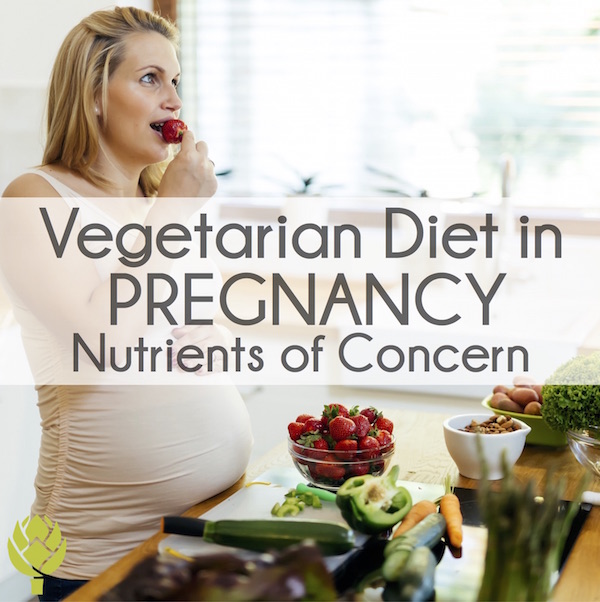

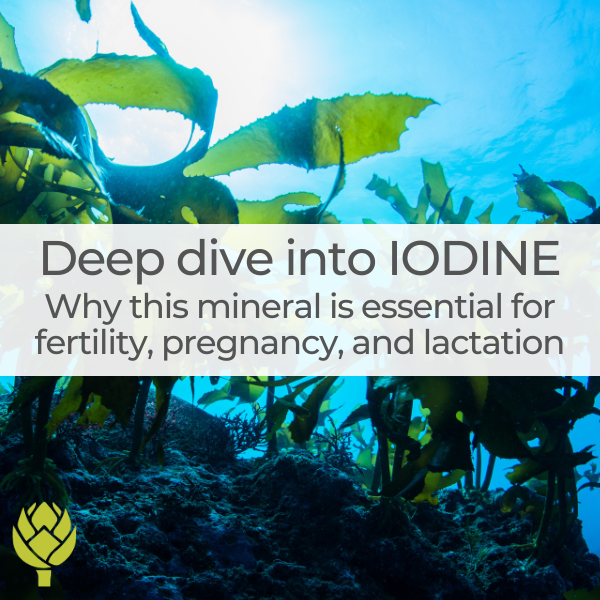
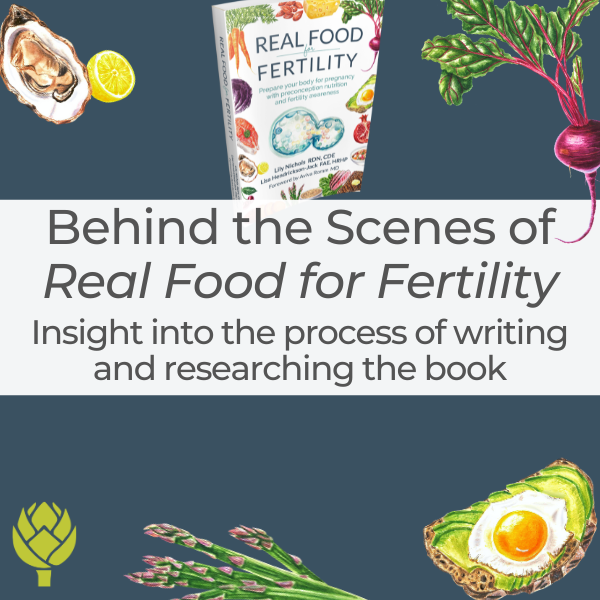
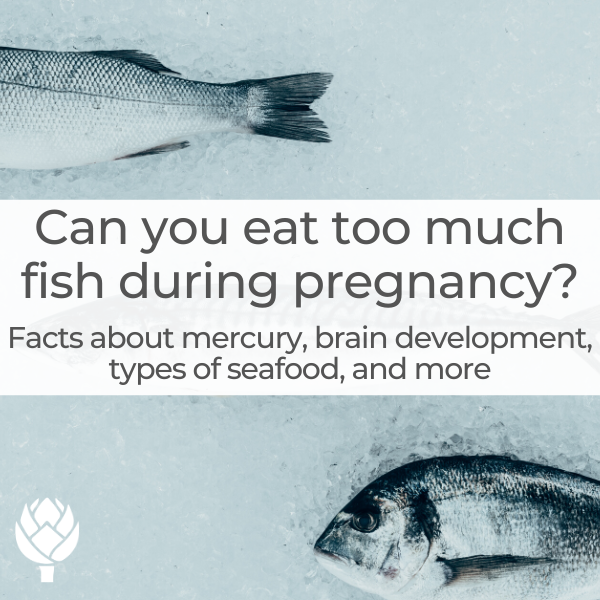
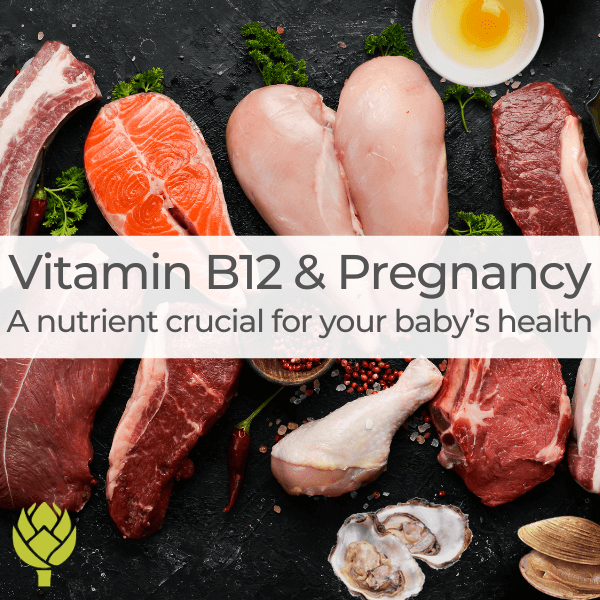



Thank you!
Before becoming pregnant, I was chronically tired and a little overweight, but was exercising 6 days a week and eating a vegetarian diet. A naturopath, an acupuncturist and a Tibetan Medicine doctor all told me I needed to eat red meat, specifically lamb. There was a significant change in my mental and physical state.
When I got pregnant, I was craving red meat and broccoli constantly. After reading your book, I now see why! Thank you for tackling such a controversial and misinformed subject.
Thanks for sharing your experience, Sachie.
Lily thanks for doing the hard work here to help us understand the science. Without healthy mothers and children we are in trouble as a species. Sadly we are seeing this now. Keep up the great work and thank you for the efforts that went into your book!
This will definitely be tough for some people to hear, but it is interesting and informative information nonetheless. I am a dietitian, and not a vegetarian, and even for me this is conflicting information. Makes me wonder about the environmental aspect of animal farming as well, and how do we manage the environmental aspects while still eating animal products! Nutrition is such a tricky subject and so multifaceted. And part of the problem is so much of the info is out of date and/or average quality studies that don’t allow for causation to be drawn. Thank you for sharing your info and I’ll look forward to future articles!
Diana Rodgers and Lierre Keith are great places to check out on the issue of sustainability and ethics of being an omnivore. Lierre was vegan for many years. Her book, The Vegetarian Myth, is a must read on all the interconnected issues of diet, agriculture, and sustainability.
God send article that will do enormous good for humanity. This takes courage… thank you for this contribution.
Key take away… eat your eggs, love the yolks and look to liver to nourish brain, body and baby.
PS. I personally encourage wild fish eggs twice a week… if prego, just about every day.
Thank you for your thought provoking article and book. I’m a children’s safeguarding doctor in the UK and worry that our standard western diet does not provide the nutrients they need, before and after birth. Therefore I’ll spread the news- publicise your article and book in my website & buy a copy as a reference source for myself , my family, my colleagues, my real food groups.
Thanks for spreading the word, Joanne!
Thank you so much for this article. I would have never had a chance to do all this research.
My pleasure. Researching the nitty gritty details is my favorite past time. 🙂
Thank you Lily for this information. I have practiced Ayurveda for 6 years. I have been a vegetarian for 25 years. I am 32 weeks pregnant and now having signs of Gestational Diabetes. This is something I cannot have and will reverse it promptly. I thank you for this information! Very helpful!!!
Hi there,
Thanks for this.
I am a lifelong vegetarian (of 20 years) who eats eggs as my main animal product and also rarely cheese, more for pleasure than health.
I take algae oil for DHA, I eat brazil nuts for selenium. I do not take pre-designed prenatal vitamins, I take independent separate vitamins based on research I have done. This includes supplementing with Vitamin D, B12, Iodine, Choline. My bloodwork indicates optimal levels of everything tested, including iron, Vitamin D and B12.
You cite the study with choline and the impact on babies for women who supplemented with choline. That suggests supplementation is fine, rather than eating animal products.
I do take your points with glycine and preformed vitamin A and I will have to make some decisions regarding that.
Have you heard of Dr. Greger of “Nutrition Facts” who also represents himself as at the forefront of evidence-based nutrition?
I am a big fan and he is a strong advocate of plant based for nutrition.
Glad it’s given you some food for thought on vitamin A and glycine. Yes, choline supplementation is perfectly fine and I encourage it for folks who do not regularly consume eggs or cannot meet needs from diet alone.
I’m a strong supporter for a diet heavy in plant foods, just not exclusively plant foods. I think you’d enjoy reading the section on considerations for a vegetarian diet in Real Food for Pregnancy. It’s fully cited, so you can read the direct literature yourself. I give clear suggestions on meeting nutrient needs in pregnancy should you choose to stay vegetarian or semi-vegetarian.
I personally have found many inaccuracies in the information given out on Nutrition Facts. I’ve had several clients who have ended up severely deficient in nutrients and unable to conceive when following such advice who have gone on to conceive and carry healthy pregnancies after bringing back in foods that supply vital micronutrients (that he specifically discourages).
Is carnivore safe during pregnancy? I am currently on carnivore and 28 weeks pregnant. I feel good, but not a lot of articles out there other than from Kelly Hogan and Charlene Anderson who are in full support of Carnivore pregnancies. Thank you.
HOw much zinc should a woman suppplemente in pregnancy?
I was reading this to see if I should by the book, but wowwww. Basing choline recommendations during pregnancy on one study on 26 woman that was funded by the Egg Nutrition Center. Oof
There are dozens of studies on choline in pregnancy, not just the one highlighted here. See this detailed post on choline and pregnancy.
Thank you for the well-written article. What would be the recommended daily amount of glycine for a pregnant vegetarian? I have a glycine supplement in powder form but have so far refrained from using it because I’m unsure of the appropriate amount. Thanks in advance!
There is no daily recommended amount. The research isn’t there yet, but see Ch3 of Real Food for Pregnancy in the “challenges of a vegetarian diet” section for the best guess so far.
This was such a beneficial read for me! I was a whole foods vegan prior to becoming pregnant with my first child. I suffered from a lot of personal guilt for craving & eating things like eggs, dairy & beef. I felt like I was failing my unborn child by eating these foods. Now it makes so much sense as to why my body was craving these nutrients! It’s incredible how your body subconsciously tells you what you need. Thanks for doing this research, looking forward to reading your book before my next pregnancy.
Yes, I’ve heard similar stories many times from vegan mothers — that the cravings for animal foods were unbearable.
Hi,
I don’t think a vegetarian diet should be followed in pregnancy. It’s too risky.
What about the research that suggests that plant based diet can improve beta cell function and reverse insulin resistance? (Book-Mastering diabetes) have you seen this?
I am so confused.
Hi Lily! Super helpful article— curious on your thoughts on how to best introduce things like red meat for those of us who find it repulsive?
I have been a vegetarian since age 7 or so mostly because I hated the taste and texture of animal products and would gag. I am trying to reintroduce chicken, and it’s been tough. I am taking a liver supplement, but trying red meat seems like a long shot. I am in the stage of preparing for pregnancy and I know stockpiling nutrients now is ideal, but it’s tough!
How can we eat better if our body rejects it?
Maybe start with more non-meat animal foods, such as eggs and dairy products. Perhaps fish is more appealing to you? Shellfish is extremely nutrient-dense, so maybe oysters, clams, or mussels? Is bone broth ok? Maybe consider incorporating meat into other dishes, like a lentil soup that has some ground meat or sausage in it rather than sitting down to a plate of straight-up chicken/steak, etc.
There’s no one right way to do this. Incorporating small amounts still contributes significantly to filling in the micronutrient gaps of a vegan diet.
Thanks so much, I appreciate it! I do eat eggs and dairy, and have started collagen powder in smoothies. Helpful/encouraging to know that even just a bit of meat and seafood can make a difference.
I appreciate this article on pregnancy nutrition and being vegetarian! I read your book “Real Food for Gestational Diabetes” and was disappointed that there was no information for vegetarians dealing with gestational diabetes. The information and links you have posted in this blog post are about nutrition in general and are helpful but gestational diabetes obviously has extra needs. Do you have any information regarding being vegetarian and having gestational diabetes? If not, any recommendations for where to look for such information? Thank you!
I wondered if there is any research addressing whether vegan diets can be challenging to harmful to a pregnant or postpartum mothers health, such as low blood pressure, low milk supply, or infertility after the first pregnancy?
This is covered in Ch 3 of Real Food for Pregnancy (pregnancy part) and in Ch 12 (postpartum/breastfeeding part).
My most pressing concern (beyond the health of mom & baby) is what happens to maternal tissue with a vegan/vegetarian diet, especially one low in protein. Baby will canabalize mom’s tissue to get enough protein for growth, leaving maternal tissue weakened. This can lead to HORRIBLE injuries to the perineum. It can be like trying to suture hamburger, which as you can imagine, is difficult. The worst non-3rd or 4th degree tear I ever repaired (looked like a banana peel), was on a vegetarian with low protein intake.
It is very easy to obtain the 100g protein recommendation on a vegetarian diet, actually! I do it with no extra effort. The main concern I have, as a lifelong vegetarian, is the choline intake + vitamin A. For choline, I eat a lot of eggs, broccoli, and pinto beans. The vitamin A is definitely a bit trickier.
Hi Lily, I was born and raised a vegetarian ( consume dairy but no eggs) all my life. All my ancestors as far as I know have been vegetarians. All the people I know in my family have had healthy pregnancies on vegetarian diets and the kids have been healthy all through their lives.
My question is how do these deficiencies that you mention in this article manifest during pregnancy and later on a vegetarian diet?
It depends a lot on the composition of the diet (as well as genetics). A well-planned vegetarian diet with ample dairy and eggs, plus other nutrient-dense foods, like seaweed, Brazil nuts, spirulina, can fill many of the potential nutritional gaps. I cover this in Ch 3 of Real Food for Pregnancy.
I am currently reading your book as a 14+ year vegetarian. I still currently have no plans to eat meat— I genuinely find it repulsive and have had a severe aversion to it since I was a child. The thought of even trying makes me nauseous and dairy consumption is always an effort for me. However, I will not be limiting meat intake for my child, but will let my husband do the meat prep and only splurge for high quality meat. I believe that the information communicated has provided valuable tips on improving my high-fat dairy intake, nut intake, and focusing on certain vegetables with supplements to improve nutritional intake. I have cut out processed carbohydrates completely and I am taking a modified approach to your recommendations along with others’ recommendations to have a well-rounded diet and still focus on “whole” foods. I think the information can still be useful as a vegetarian, with modification.
I was searching for the nutrients of concern on pubmed to see the most recent research. They all seem important. Except for vitamin A. All I could find about vitamin A is studies showing that vitamin A, whether from supplement or whole food, is teratogenic. According to chronometer an ounce of liver contains 2677 µg of preformed vitamin A. Are there studies showing this level, consumed regularly, is safe?
Hi Teale,
This topic is covered in detail in this article.
I’m a vegetarian and have been reading your book. I am particularly concerned about glycine. I just purchased a glycine supplement, but when I looked online about safety during pregnancy, I found several websites saying not to take glycine or individual amino acid supplements when pregnant. Are there any studies evaluating the safety of glycine supplements when pregnant?
Hi Lily,
I’ve been vegetarian over 15 years and I am trying to concieve at the moment. I don’t mind adapting my diet to a slighly more “carnivore” one. Would you recommend changing my diet while trying to concieve / pregnancy? or could it have a negative impact/effects since I havn’t eaten meat/fish for a long time?
It’s entirely up to you. I’d recommend reading chapter 5 of Real Food for Fertility for specifics on nutrients of concern related to fertility. That chapter contains a very practical section with considerations when reincorporating animal foods. The main consideration (not that I’d call it a “negative impact” necessarily) is supporting your digestive system during the transition.